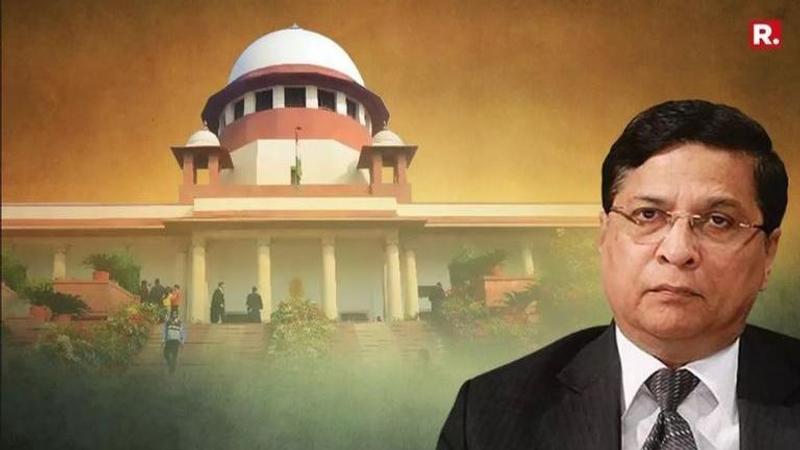Published 09:55 IST, August 29th 2018
The CJI can now grant accreditation to Supreme Court journalists without law degrees
A new amendment was made during the Accreditation Committee meeting on August 24, which allows the Chief Justice of India to allow accreditation at discretion to those Supreme Court journalists who do not hold a law degree in certain circumstances

In a move that may allow for wider journalistic coverage of judicial proceedings, an amendment has been made at the Supreme Court's Accreditation Committee's meeting on August 24 conferring upon the Chief Justice of India the discretion to waive the requirement of a law degree for a journalist to be accredited, so long as certain criteria are met. In other words, now, a journalist, despite not holding a law degree, could be able to report on Supreme Court cases.
The amendment from the meeting reads, "However, the Hon’ble Chief Justice of India, in his discretion, in appropriate cases can waive the condition for possessing Law degree, in case a working journalist/correspondent fulfills the following condition. He holds a Bachelor degree from a recognized University and possesses 5 years’ continuous experience, in addition to the experience prescribed in the following paragraphs, as may be applicable."
While there has been a relaxation on the degree front, and discretion accorded to the CJI on the accreditation front, the other measures still remain the same. Any journalist, wishing to cover a Supreme Court case proceedings, must hold a minimum of Bachelor's degree from a recognized university, as well as five continuous years of experience of reporting in a Court.
This was the first amendment made on the circular of September 7, 2015, which laid down guidelines for any journalist or reporter intending to cover cases in the Supreme Court. The norms read, "He should ordinarily have five years’ continuous regular Court reporting experience in a daily newspaper and/or a national or international news agency or electronic Media Organization of which at least three and a half years must be at the Supreme Court or at any High Court(s) in India."
Speaking about this unprecedented amendment, Republic TV's legal editor Rhythm Anand Bharadwaj said, "Great move by Supreme Court. Even though I have practiced law, several colleagues of mine without a law degree are possessed with a keen understanding of the law. It wil benefit us to have them get regular Supreme Court Accreditation."
Further, there have rules laid down by the court which ought to be followed by any journalist or reporter while attending a case at the Supreme Court. The court asks the journalists to be formally dressed, should maintain the decorum of the court and shall not distort facts, and report only the truth,
Updated 09:55 IST, August 29th 2018




